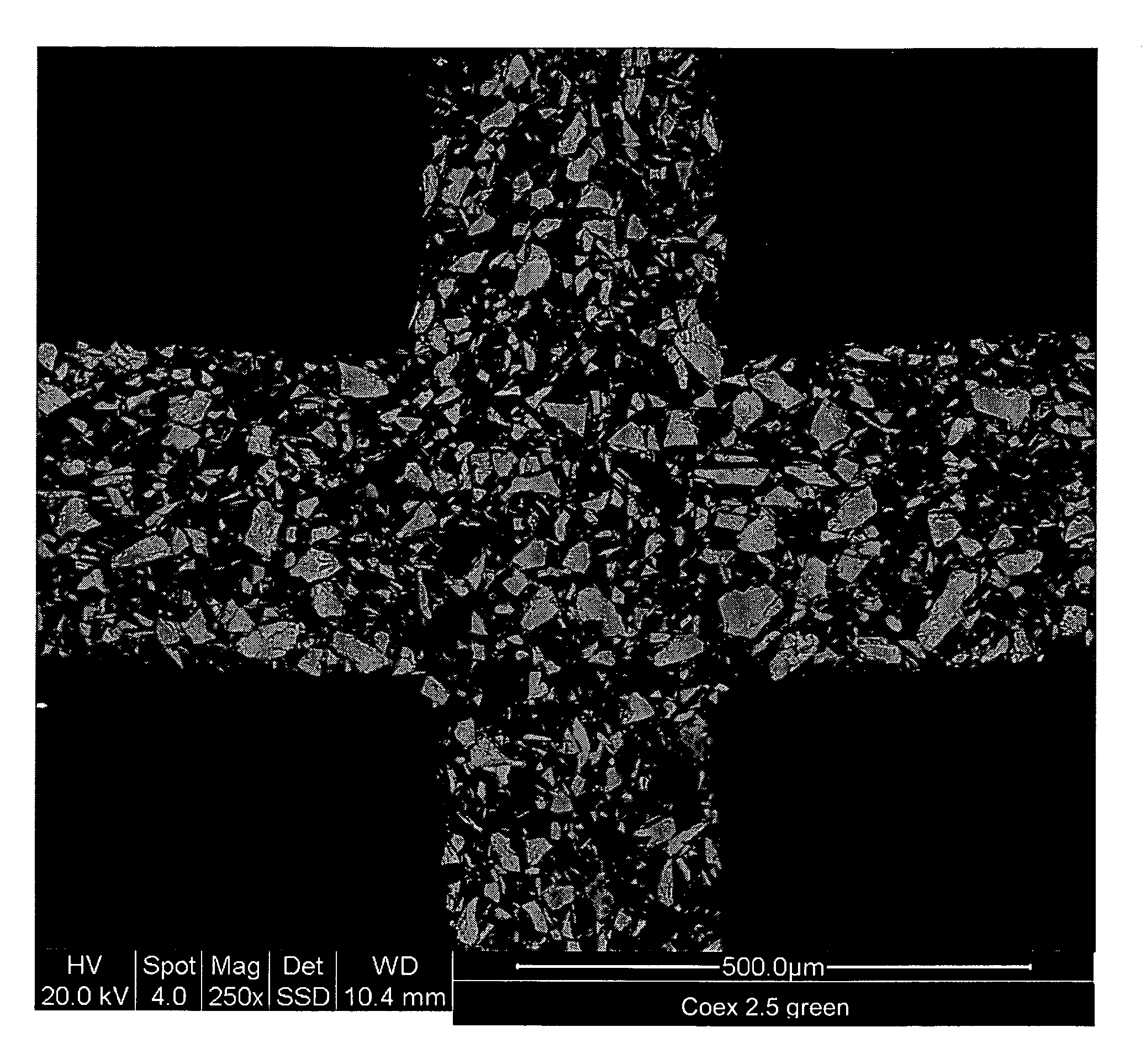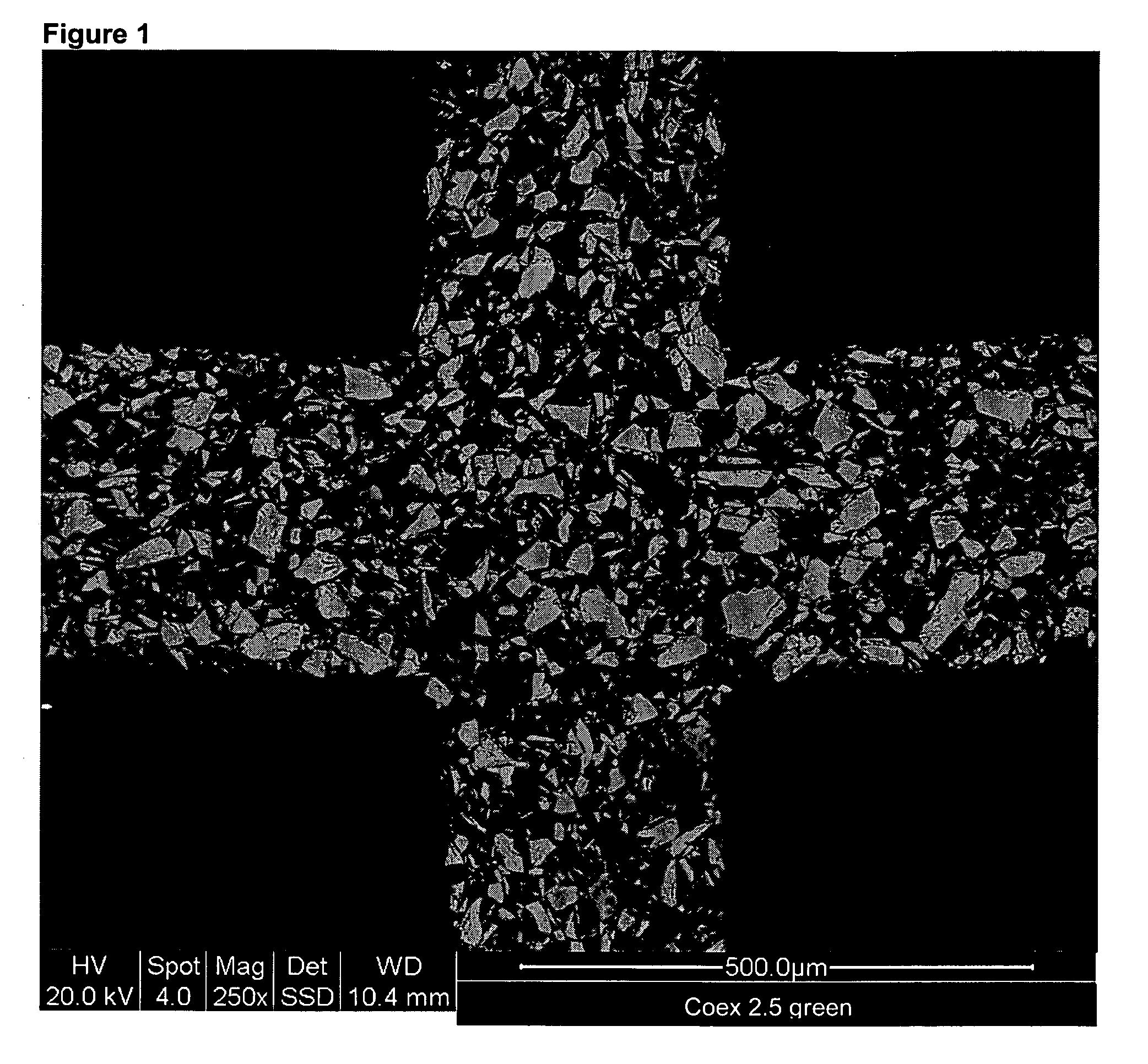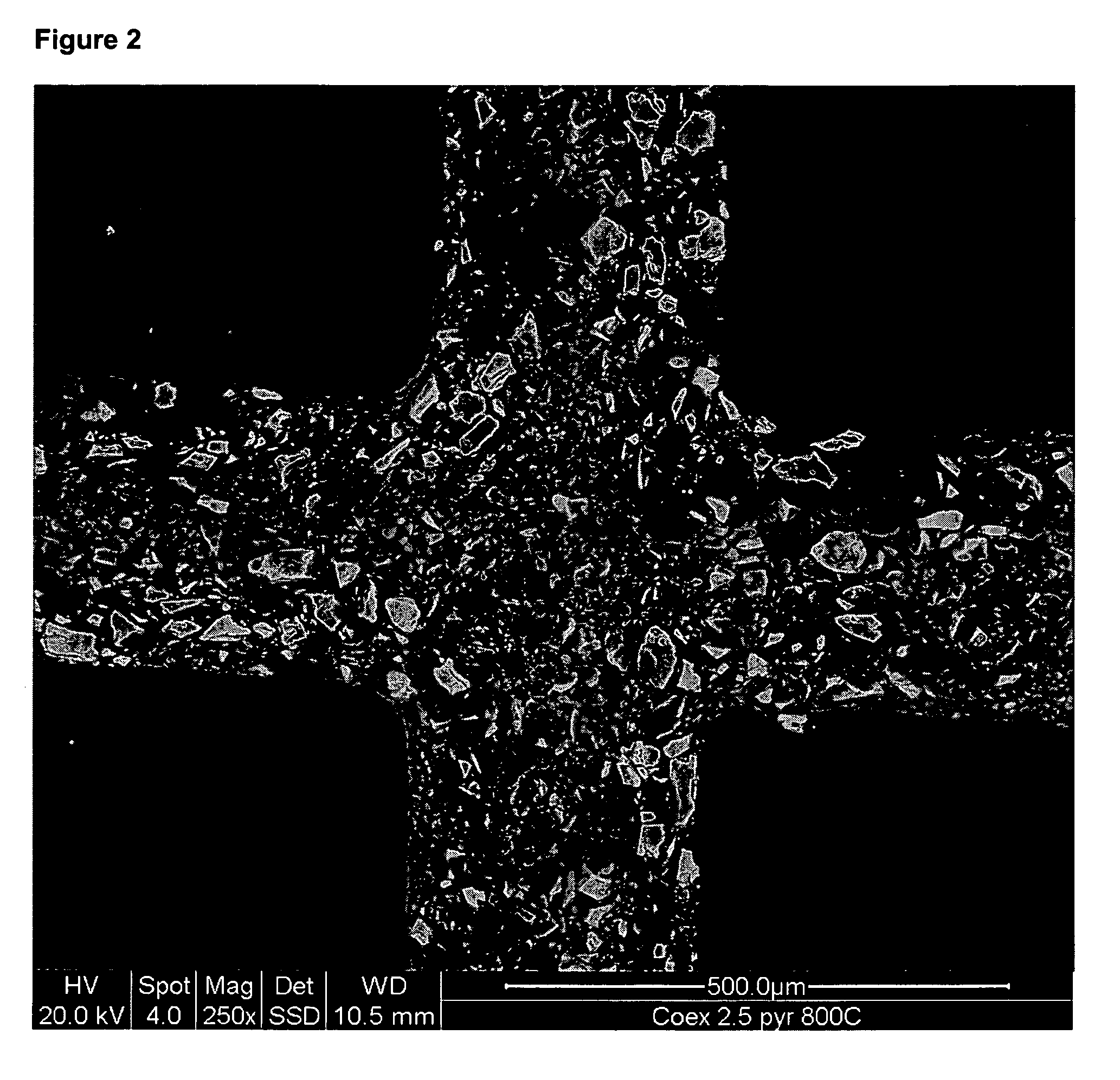Molded porous ceramic article containing beta-SiC and process for the production thereof
a technology of porous ceramics and beta-sic, which is applied in the direction of ceramics, separation processes, physical/chemical process catalysts, etc., can solve the problems of high cost of process, high wear and tear of extrusion dies, and inconvenient production of porous sic-based components, etc., and achieves wear and abrasion reduction, the effect of less energy expenditur
- Summary
- Abstract
- Description
- Claims
- Application Information
AI Technical Summary
Benefits of technology
Problems solved by technology
Method used
Image
Examples
example 1
Molded β-SIC Article Produced by Extrusion of an Si-Containing Carbon Composition Followed by Conversion of the Carbon and Silicon to Silicon Carbide
[0135]An extruded molded article was produced by the process described in DE 101 04 882. To the mixture there was added a hyperstoichiometric amount of silicon instead of clay, followed by mixing and extrusion.
[0136]In order to produce the channeled structure of silicon and carbon, silicon powder and powdered activated carbon were mixed with phenolic resin. These components were then processed together with cellulose ether, water, and a plasticizer in a kneading machine to form an extrudable composition. This mixture was subsequently extruded to give a channeled body, which was dried by means of microwave technology under a blanket of nitrogen. The channels had a wall thickness of 265 μm and the channel density was 200 cpsi (cells per square inch or channels per inch2).
[0137]The composition of the mixture used for extrusion is given in ...
example 2
[0143]Example 2 is a repetition of Example 1 except that a silicon powder having a particle-size range of from 0 to 45 μm and a d50 value of 7.6 was used.
[0144]From the graphs in FIGS. 5 and 6 it can be seen how the size distribution of the Si powder is transferred to the pore distribution.
PUM
| Property | Measurement | Unit |
|---|---|---|
| pore size | aaaaa | aaaaa |
| porosity | aaaaa | aaaaa |
| half-height width | aaaaa | aaaaa |
Abstract
Description
Claims
Application Information
 Login to View More
Login to View More - R&D
- Intellectual Property
- Life Sciences
- Materials
- Tech Scout
- Unparalleled Data Quality
- Higher Quality Content
- 60% Fewer Hallucinations
Browse by: Latest US Patents, China's latest patents, Technical Efficacy Thesaurus, Application Domain, Technology Topic, Popular Technical Reports.
© 2025 PatSnap. All rights reserved.Legal|Privacy policy|Modern Slavery Act Transparency Statement|Sitemap|About US| Contact US: help@patsnap.com



